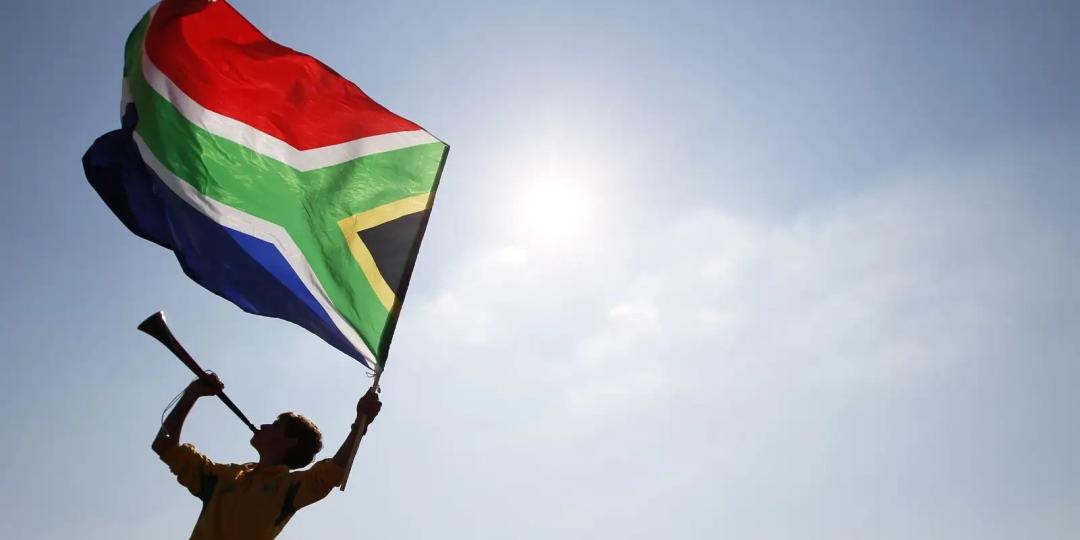Coinciding with the elections, the 2024/25 financial year (ending March 2025) marks a crucial transition period for South African Tourism, which is seeking to restore its corporate brand after a “loss of trust internally and externally”, according to the marketing agency’s annual performance plan.
The organisation is restabilising after numerous changes at executive management and board levels, stemming from the controversial R1.1 billion (€56 million) proposal to sponsor English Premier League team Tottenham Hotspur in early 2023.
“Towards the end of the 2022/23 fiscal year and well into the 2023/24 fiscal year, South African Tourism has been confronted with reputational challenges. This has resulted not only in the erosion of the South African Tourism corporate brand but also a loss of trust internally and externally, which adversely impacts reputation and productivity,” states SA Tourism’s 2024/25 Annual Performance Plan (APP).
“The implication of this is that, going forward, South African Tourism's efforts toward the restoration of the entity's corporate brand and reputation will need to be intensified. Key considerations include ensuring a smooth transition in planning, budgeting, and reporting processes.”
Positive steps towards stabilising the entity were taken in February 2024, with the appointment of a full board – headed by Chairperson Makhosazana Khanyile – and a new CEO, Nombulelo Guliwe.
The APP, however, voiced concern that the organisation’s declining reputation as an employer had led to difficulties in recruiting qualified candidates, and resulted in high turnover rates.
“This problem is further compounded by low levels of employee engagement, limited career growth opportunities, and a challenging work environment.”
Key focus areas in the fiscal year will therefore be on leadership stability, organisational effectiveness initiatives, employee wellbeing, assessment of the operating model, and reinforcement of a high-performance culture.
Strategic priorities
One of the major strategic priorities for the organisation will be a revision of the Marketing Prioritisation and Investment Framework (MPIF). Reviewed every five years, the MPIF focuses on defending market share in established source markets; elevating the country’s position in markets with significant outbound potential, and tracking ‘watchlist’ markets that hold future potential.
The framework makes use of 33 variables related to performance, outlook, South Africa’s ability to win in the market, and return on past investments. A total of 24 markets are prioritised in the 2020-2025 term of the MPIF, segmented into 16 growth and eight defend markets (see table below).

With South Africa’s inbound arrivals hovering at around 80% of 2019 figures, the organisation identified a revised MPIF as a crucial mechanism to achieve pre-pandemic levels.
“It is important to consistently evaluate the relative significance of the 24 prioritised markets and to stay informed about factors that impact travel likelihood from each market. South African Tourism reviews this portfolio in order to improve its ability to dynamically and effectively allocate and manage its budgets and resources,” the APP highlights.
South Africa fell short of the 10.6 million international arrivals targeted for the 2023/24 financial year (April 1, 2023-March 31, 2024) in Tourism Minister Patricia de Lille’s Delivery Agreement with President Cyril Ramaphosa, recording 8.8 million arrivals for the period.
“This is a key issue to address, plan for, and track. Critical factors that will drive visitor numbers include visa availability, affordability, air access, and top-of-mind presence, through marketing,” SA Tourism’s APP highlights.
Crucial importance has also been placed on strengthening an integrated master approach to South Africa’s tourism brand, through toolkits and enhanced collaboration.
“In the diverse and competitive landscape of tourism, South Africa faces the challenge of marketing its unique attractions against global destinations. Despite limited resources and a weaker currency compared with key competitors, it is crucial for all destination marketing organisations, both public and private, to collaborate and establish a unified messaging position,” said the APP.
Other priorities include:
- Leading the digital transformation of the tourism sector.
- Reviewing the South African National Convention Bureau strategy.
- Critically examining the strategic platforms where SA Tourism must ‘show up’.
- Formulating the Global Trade Strategy, addressing barriers and enhancing the visitor experience.
Dip in estimated expenditure
The marketing entity’s expenditure across its five core programmes – Corporate Support; Business Enablement; Leisure Tourism Marketing; Business Events; and Tourist Experience – for the financial year 2024/25 is expected to be R1.38 billion (€70m), marginally below the R1.44 billion (€71m) spent during 2023/24 (see table below).

With leisure tourism marketing leading the execution of SA Tourism’s mandate to revitalise the destination brand and drive increased arrivals, the bulk of the budget – R838.8m (€42.5m) – has been earmarked for the programme. The APP recognised the need to adopt a new growth approach, revolving around a Global Brand Campaign localised for each of South Africa’s priority source markets.
“(We) will deliver localised marketing campaigns to both consumers and the distribution channel to generate demand for South Africa’s wildlife, stunning landscapes, rich cultural heritage, vibrant cities, and adventure, whilst promoting sustainable tourism practices to protect the environment and local communities.”
A total of eight such campaigns – four in Europe, two in the Americas and two in Asia and Australasia – are targeted for the year.
The business events programme will spend an estimated R200m (€10.1m), centring on the development of a new SANCB strategy – the first revision to the strategy since the bureau’s inception in 2011. The programme will focus on a review of existing and available strategic platforms, sourcing of insights to assist with winning bids against competitor destinations, and assessing both macro-economic and micro-economic impacts of business events.
“As part of our plans for the 2024/25 financial year, we have spent a considerable amount of time collaborating and consulting with the greater tourism sector, and we have laid a solid foundation for the 2024/25 financial year. The projects outlined in this APP represent those engagements and indeed ensure that we are poised for growth,” Minister de Lille wrote in a preamble to the APP.
What are your thoughts on South African Tourism’s Annual Performance Plan? Leave us your comments below.























